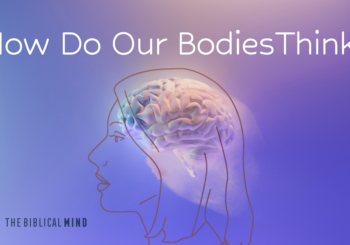How Paul’s Philosophical Convictions Challenge the Church
“If anyone thinks he knows something, he does not yet know as he ought to know” (1 Cor. 8:2). Paul wrote this to a church whose pride in knowing left their community rife with division. Paul reminded them that knowledge puffs up and can destroy the body. It follows for us that part of the Christian calling is to take every thought captive in obedience to Christ (2 Cor. 10:5)—to engage the thought-world of the Bible.
At a minimum this means rehearsing the story where sin and evil arise from a desire for a “tree of knowledge.” It’s easy to overlook the complexity of this scene in the garden, as if the wrong choice was so blatantly obvious: this silly, almost cartoonish couple fell for the oldest trick in the book. But the deep truth in this story is that, in the very best of circumstances, we can be totally and irrevocably convinced that good is bad and bad is good. Or, as it is often played out in the pews and social media, “I am right and you are wrong.” Psychologists label this protective instinct the “righteous mind,” which makes us feel unquestionably right when we are in fact demonstrably wrong.
Enjoying this article? Read more from The Biblical Mind.
The Bible also has some important technical dimensions worth knowing. “Seeing” in the Bible isn’t like our modern certainty where, “seeing is believing,” but a form of perception that can be true or false. “Hearing” isn’t usually with the ears, but an act of obedience and submission. And “Remembering” is rarely just the recall of things from the past, but more often a belief that a significant moment in the distant past can be experienced in the present—history miraculously collapsed for a moment as God’s eternity dips into the world of time. I suspect most church congregants underestimate this mind- and time-bending power of biblical memory. In doing so we fail to see that Jesus is really present with us in the breaking of the bread just as he was really present on the shore with his disciples after the resurrection—that “eternity is today,” as Augustine once put it.
Finally, and perhaps most importantly, the church needs frequent reminding that faith and hope are ways of knowing and NOT, as often assumed, contrary to reason. Faith and hope are fully reasonable; indeed, they go beyond reason and may even correct reason. Put differently, human reason has a limit where it yields to these two divine virtues. Faith is the first in order. It believes in a good world before us that cannot be fully seen, a world where life, healing, and peace have been given victory over sin and death. It is reasonable belief but not derived by reason.
Faith is sister to hope, reaching into the future toward a promise of eternity that reason can neither comprehend nor explain.
It is here that the Beatles’ “All you need is love; love is all you need,” takes us disastrously off track. In the New Testament, love is not a solitary thing, much less an emotion. Love is propped up and animated by faith in God’s salvation and hope in his promise.
We all know this truth from the overly romanticized passage in 1 Corinthians 13:13. Yet Paul returns to this trio of virtues several more times, telling us that the knowledge of faith and hope rescue love from the ether of Beatles’ love and put it to work here and now. Faith and hope give love its strength and conviction, its impetus to act in the present, and the patient, selfless endurance it needs if it is to be love.
Did you enjoy this article? Check out podcasts produced by the Center for Hebraic Thought.
Credits for the pictures used in CHT content can be found at: hebraicthought.org/credits





